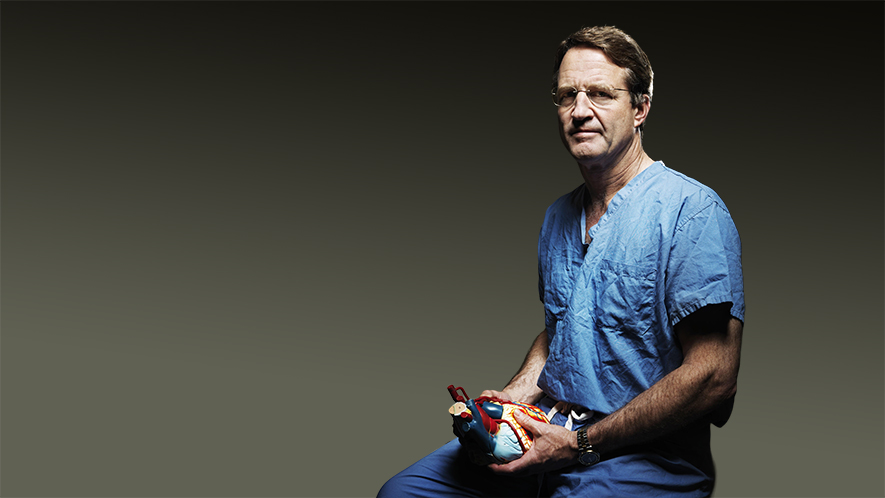In a special grand rounds presentation, Columbia’s Preeminent Cardiac Surgeon shared insights gained over his surgical career
Grand rounds are a stalwart of any academic medical institution, a manifestation of the commitment to never stop learning. Having an expert walk an audience of peers through cases, studies, or even the state of a medical specialty offers a unique and effective way to learn from the experiences of others.
In rare cases, grand rounds can offer valuable insights about life beyond the hospital.
Craig Smith, MD, Chair of the Department of Surgery at Columbia and Surgeon-in-Chief, NewYork-Presbyterian, recently delivered a deeply personal retrospective, sharing lessons learned across his celebrated career—both in the OR and in life.
Looking Back to the Beginning
The sheer length of Dr. Smith’s surgical career offers a valuable perspective, having seen the field in its entirety. “Remember: that heart surgery didn't even exist when I was born,” joked Dr. Smith. “I've been operating for over 40 years. So most things were pretty new, and there was a premium on making things better and smooth. Making something like valve surgery look routine was, in a sense, its own kind of innovation.”
Dr. Smith spoke candidly of the early days of cardiac surgery education and the challenges of learning by doing. “I would say that learning was a lot more of what we did than being taught—there wasn't that much in textbooks. There wasn't really that much known. We were all very much learning together.”
“If You Can't Take The Lows, You Don't Deserve The Highs”
Dr. Smith was asked how he dealt with complications, mistakes, and the “highs and lows” of cardiac surgery. “If you can't take the lows, you don't deserve the highs. And that's not just true of heart surgery. That's true of many endeavors in life.”
He went on to talk about the importance of taking responsibility for your actions when things do go south. “Look for where your footprints are. Start there, and then figure out whether something you did was the problem or not. Then move on from there and figure out what went wrong. Very often, it's not something I did or you did. It's a series of errors committed by a group of people, by the system, all mixed in together. But it is important to recognize your own role and take responsibility for it. I don't think taking personal responsibility for something you did wrong feels any worse than not taking it.”
His most practical advice? “Shoes. 20 years in clogs ruined my feet, so don't let them ruin yours. Wear some kind of sturdy, supportive shoes.”
A Different Time
As a veteran of a time when many surgeons were well known for their outbursts and abrasive demeanor, he asked rhetorically whether or not the field had suffered for the shift.
“We all know, in things like surgery, there are doctors that people can't stand but still send their patients to. They are the people who, when the chips are down, figure it out; they might scream and yell and make people feel bad. But that's who you send your family to. Not everybody's fun to work with.”
The Intangibles
When asked about what it takes to be a great surgeon, he was blunt but honest. “You can't train everybody to be a great surgeon. There's something missing between the brain and the hands. The hands work just fine; they cut and sew and all that stuff just fine. But when they have to start making decisions, the wheels come off and it just doesn't work. I don't know if you can train gift.”
An Honest Assessment
Dr. Smith spoke with candor and honesty about what he wished he had done better over his career. “I still all too often make the mistake of assuming that people know what I'm thinking, when it really just needs to be explained.”
He talked about missed calls, potential game-changers that failed to live up to their promise. He spoke about directions he thought his career would take that never materialized. “I think in retrospect, it was not for me anyway.”
Watch the entire lecture here:
Related

